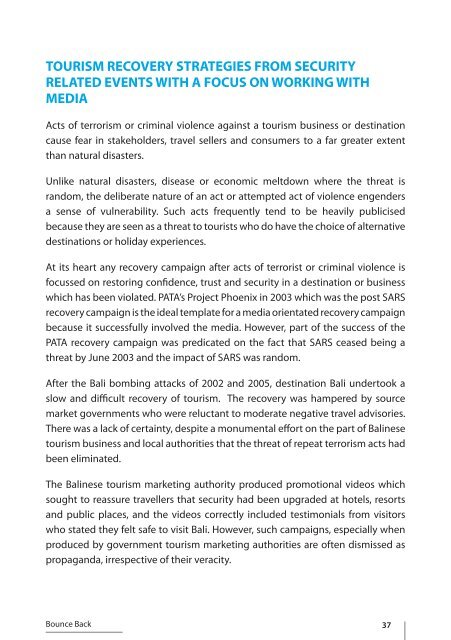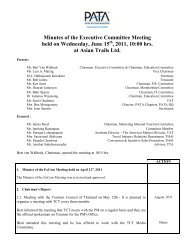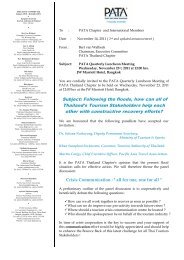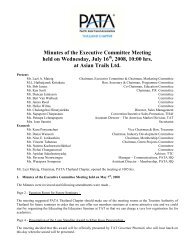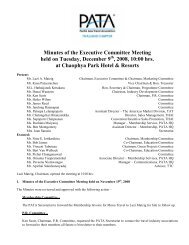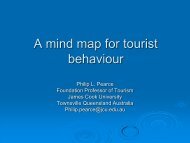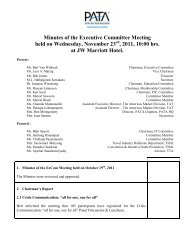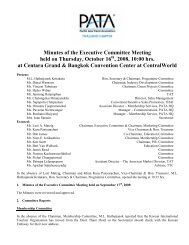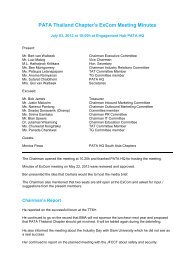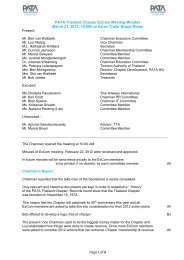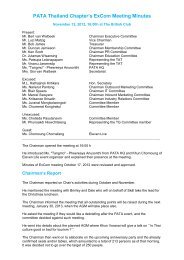Bounce Back - Pacific Asia Travel Association Thailand Chapter
Bounce Back - Pacific Asia Travel Association Thailand Chapter
Bounce Back - Pacific Asia Travel Association Thailand Chapter
Create successful ePaper yourself
Turn your PDF publications into a flip-book with our unique Google optimized e-Paper software.
TOURISM RECOVERY STRATEGIES FROM SECURITY<br />
RELATED EVENTS WITH A FOCUS ON WORKING WITH<br />
MEDIA<br />
Acts of terrorism or criminal violence against a tourism business or destination<br />
cause fear in stakeholders, travel sellers and consumers to a far greater extent<br />
than natural disasters.<br />
Unlike natural disasters, disease or economic meltdown where the threat is<br />
random, the deliberate nature of an act or attempted act of violence engenders<br />
a sense of vulnerability. Such acts frequently tend to be heavily publicised<br />
because they are seen as a threat to tourists who do have the choice of alternative<br />
destinations or holiday experiences.<br />
At its heart any recovery campaign after acts of terrorist or criminal violence is<br />
focussed on restoring confidence, trust and security in a destination or business<br />
which has been violated. PATA’s Project Phoenix in 2003 which was the post SARS<br />
recovery campaign is the ideal template for a media orientated recovery campaign<br />
because it successfully involved the media. However, part of the success of the<br />
PATA recovery campaign was predicated on the fact that SARS ceased being a<br />
threat by June 2003 and the impact of SARS was random.<br />
After the Bali bombing attacks of 2002 and 2005, destination Bali undertook a<br />
slow and difficult recovery of tourism. The recovery was hampered by source<br />
market governments who were reluctant to moderate negative travel advisories.<br />
There was a lack of certainty, despite a monumental effort on the part of Balinese<br />
tourism business and local authorities that the threat of repeat terrorism acts had<br />
been eliminated.<br />
The Balinese tourism marketing authority produced promotional videos which<br />
sought to reassure travellers that security had been upgraded at hotels, resorts<br />
and public places, and the videos correctly included testimonials from visitors<br />
who stated they felt safe to visit Bali. However, such campaigns, especially when<br />
produced by government tourism marketing authorities are often dismissed as<br />
propaganda, irrespective of their veracity.<br />
<strong>Bounce</strong> <strong>Back</strong><br />
37


